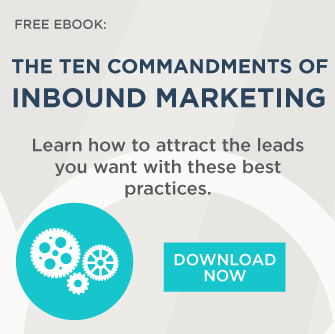Inbound Marketing: The Answer to 3 of the Most Common PEO/HRO Marketing Problems
As the economy heats up and businesses are growing, business leaders are seeking ways to take advantage of market opportunities and maximize their...


“The decision to move forward with a PEO was almost always based on a trust that the PEO would handle the [HR] functions with the same care and investment as the business owner.” —NAPEO’s “PEO Market Research” April 2018
In NAPEO’s research, they found that once prospects can answer the question “what the heck is a PEO?,” a large fraction (67%) of prospects that previously described themselves as “somewhat interested” in partnering with a PEO become “very interested” in partnering with a PEO.
But that isn’t enough to turn a prospect into a lead, much less turn a lead into a customer. Perhaps the most important finding from their market research report regards those who almost become PEO clients. They received a formal proposal from a PEO yet did not move forward. Why?
 Root of the Problem: Lack of Trust
Root of the Problem: Lack of TrustAcross the board in the report, leads were skeptical that:
- PEOs wouldn’t change their pricing once they had a “foot in the door”
- PEOs wouldn’t make the transition difficult for employees
- PEOs are capable of achieving the feats they claim (such as achieving a 27.2% ROI)
- PEOs can excel in all aspects of HR
In each case, the root problem is the same: a lack of trust. This is understandable; there’s a huge perceived risk in handing your HR services to someone who simply claims they’ll do a great job.
That’s why converting leads comes down to building trust. While referrals are the most common way to achieve trust, that is not always an option.
Luckily, there are alternative means of building trust and forming long-term relationships.
The goal of empathy is not just to make people feel good; it’s a way to predict both the rational and emotional objections that a lead will have towards outsourcing their HR functions. Calming rational fears about outsourcing HR is not enough; the emotional side of things must be catered to as well. Neuroscience has found that emotion is the key factor in decision making.
Rational arguments are a way for prospects to justify their emotional decision to themselves and others. Reading about the “average reaction” of PEO prospects is not enough to deal with leads that have unique personalities and preferences. When you can address both their emotional and rational objections, they will have fewer reservations about working with you.
Your prospects are educated. They know there is no such thing as a deal which is too good to be true. If you only tell them good aspects of PEOs and paper over any issues, their skepticism will surely increase. Be transparent about their pain points, their frustrations, and any issues that may arise.
For potential PEO clients, the factor that weighs most heavily on their choice is the referrals and testimonials of individuals they already know. Specifically, the 2018 Report found that the most important sources of information were “business associates/peers” and “trusted advisors” such as accountants or lawyers. So, even if someone is not in the market for a PEO, they may become a powerful source of referrals.
This DOES NOT mean you should stalk your prospect to find their most trusted advisors. No one wants to hear that a salesperson went around their back to pitch their lawyer or accountant. The important point is that becoming a known entity by trusted advisors makes it more likely that you will get referrals that trust you.
Written testimonials or case studies are nice, but they can also be easily forged. Prospects want to see that these clients are real people with real problems just like your prospect’s problems. Case studies are a great way to demonstrate the value your PEO can add without appearing to be bragging. Video testimonials are helpful, but they're not as engaging as case studies that present a problem and solution in a story format.
Do you know what people are saying about your business on Yelp? How about Google My Business? Glassdoor? What happens when you type your company name into a Google search?
Your prospects will research you online, and a bad review can send them packing. That’s why it’s important to monitor online reviews and respond to them in a timely manner. For sales purposes, always respond to negative reviews. For search engine optimization purposes, respond to every review including positive ones.
Perhaps the biggest pothole on the road to trust is when PEOs casually throw around the term “co-employment.” Even NAPEO found that their description of PEOs resulted in confusion when they explained the relationship between co-employment and PEO advantages like accessing better benefits.
To most people, the term “co-employment” means “splitting employment.” That sure sounds like it could result in a business owner losing control over their own company. At some point, you need to sit the client down and patiently explain what co-employment actually means. Casually throwing the word around will cause confusion and delay forming a relationship.
Following the six recommendations above will go a long way in establishing trust where none previously existed. When you are empathic, honest about the downsides, careful with your wording, and known by the trusted advisors and colleagues, your chances of gaining a new client skyrocket.
Every PEO tries to establish trust through repeated contact with their salespeople. To get a step ahead of the competition, establish trust through the client’s community.

As the economy heats up and businesses are growing, business leaders are seeking ways to take advantage of market opportunities and maximize their...

Too many Professional Employer Organizations (PEOs) are ignoring the obstacles to lead generation and turning conversions into customers. The primary...

The National Association of Professional Employer Organizations (NAPEO) bills itself as “The voice of the PEO industry”—providing government...